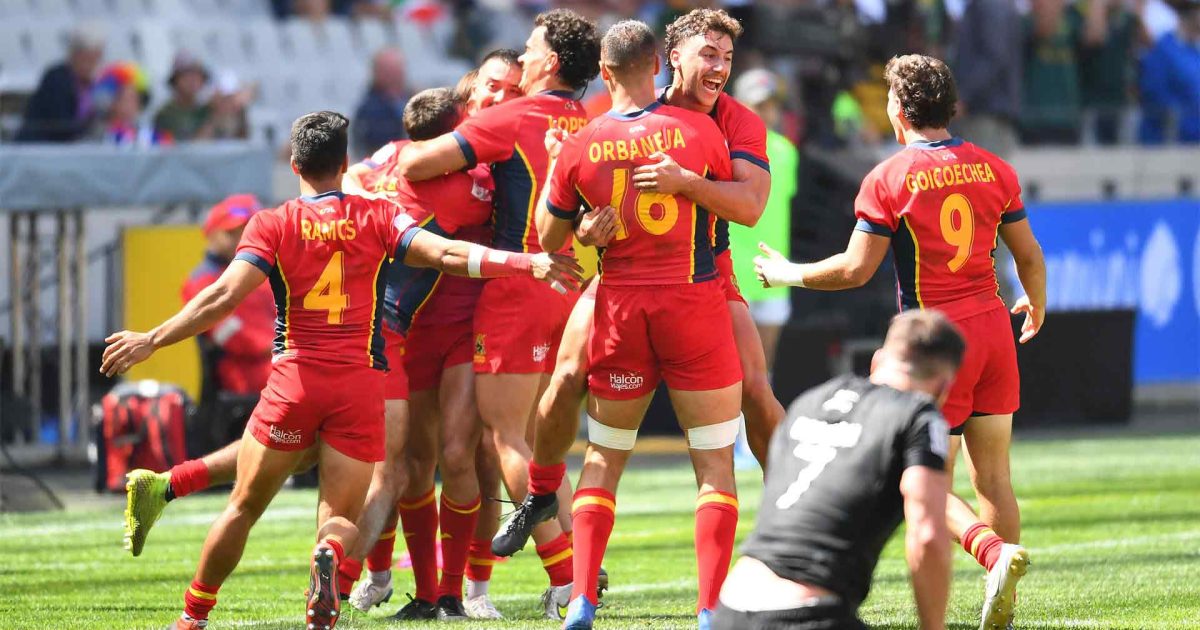Spain shock New Zealand on opening day of Cape Town Sevens

After two tough opening legs of the 2022-23 Sevens World Series, things haven’t gotten any easier for New Zealand in Cape Town.
Losses to Samoa and Australia saw the All Blacks 7s fall to ninth place in the opening tournament in Hong Kong, while a semi-final finish in Dubai last weekend boosted the Kiwis up to seventh on the overall ladder.
Placed in a pool alongside Argentina, Kenya and Spain for the South African leg of the series, New Zealand entered the tournament as narrow favourites to top their group, with Argentina looming as their biggest challengers.
But Spain, not content with their 13th-place seeding, paid no heed to expectations and in just the second match of the day caused what will likely go down as the upset of the tournament.
NZ looked turgid in an encounter which eventually ended 12-5 in Spain’s favour and consigned the All Blacks 7s to their third opening-match loss in as many tournaments.
For Spain, the victory marked just their second ever over New Zealand, with the relative minnows of world rugby grabbing a first win over the heavyweights in 2019 in Vancouver.
Spain’s triumph wasn’t the only upset of the opening day, however.
Australia – currently second on the overall ladder courtesy of a first-place finish in Hong Kong – found themselves on the wrong side of the scoreboard against Great Britain, with the composite England-Scotland-Wales side grabbing an unexpected 21-19 win. With USA in strong form against Kenya, earning a 38-5 victory, it’s entirely possible that Australia miss out on progressing to the quarter-finals after going winless in last week’s tournament in Dubai.
USA’s win over Kenya aside, the men’s competition was tightly fought on Friday morning, with Argentina scoring a 19-5 win over Kenya, Samoa beating Uruguay 21-10 and Ireland triumphing 19-5 over Japan in the men’s competition.
While the women’s competition started out similarly, with France and Canada drawing 19-all, USA beating Japan 19-14 and Fiji going 19-10 against Great Britain, the results started to balloon out throughout the day with New Zealand, Ireland and Australia thrashing Brazil, Spain and hosts South Africa.



























